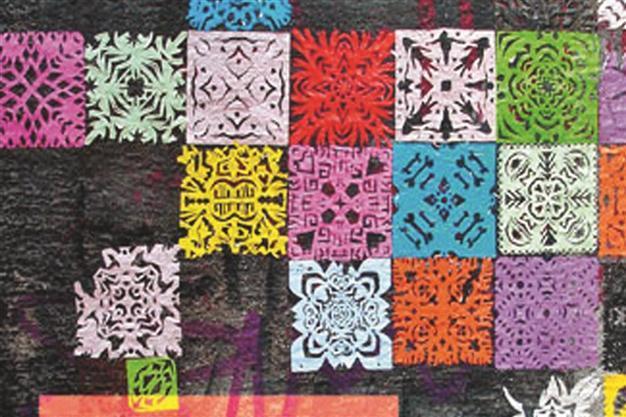Living in a Shop Window : The New Cultural Climate in Turkey
William Armstrong - william.armstrong@hdn.com.tr
 ‘The New Cultural Climate in Turkey: Living in a Shop Window’ by Nurdan Gürbilek (Zed Books, 2011, 35TL, pp 224)
‘The New Cultural Climate in Turkey: Living in a Shop Window’ by Nurdan Gürbilek (Zed Books, 2011, 35TL, pp 224)
The Sept. 12, 1980 coup was the most brutal and uncompromising in Turkey’s history. Its hard figures are astonishing enough: In all, 650,000 people were taken into custody in the immediate aftermath, 230,000 were put on trial, 1.7 million were officially blacklisted, 517 received death sentences (of whom 50 were executed), 299 inmates died in prison due to “indeterminate” reasons, 171 died under torture, 14 died in hunger strikes, 388,000 citizens were denied passports, and the military authorities revoked the citizenship of more than 14,000 people. The paradox is that this harsh medicine preceded an unprecedented economic “opening up” of Turkey to the world, in which the fundamentals of the country’s modern economy were redrawn. Thus, the post-coup 1980s make for an enormously paradoxical decade, framing many of the contradictions that still lie at the heart of Turkish society today. The central concern of these 10 essays by critic Nurdan Gürbilek is to examine these contradictory impulses, summarized neatly by her as being a period of “denial, censorship, and silencing”:
But also one of promise, provoking desire as never before … Freedoms were more restricted than ever before, but people had perhaps never felt so free … Prohibitions continued, yet people began to speak with an appetite the like of which had never been seen.
The book carries the seed of a very promising idea, but unfortunately its combination of cultural and literary criticism is mostly rather clumsy and frustrating. In the end, it’s a curate’s egg of a collection, mixing some fine passages with rather more patience-testing ones.
Throughout the book, Gürbilek presents us with less-obvious popular cultural phenomena and considers them in light of the post-coup tensions, mining them for meaning. A good example of this is her comparison of the singers Orhan Gencebay and İbrahim Tatlıses. The austere and self-denying Gencebay, she writes, hit the heights of his popularity in the 1970s, resonating with a public receptive to songs of patience and renunciation that counseled resignation and emphasized the “impossible space between desire and satisfaction.” However, the fleshier, hungrier, Arabesque voice of Tatlıses soared in popularity in the 1980s, catching the prevailing mood of acquisitive desire that came with the new economic policies that followed in the years after the coup. While Gencebay lamented, “I don’t want your charity,” Tatlıses gave voice to an entire society’s wish to be free of renunciation, yearningly crying “Me Too” in one of his most celebrated songs. The inescapable paradox is that such expressions were exploding at a time described by the author as “the most repressive in Turkey’s recent history.”
Elsewhere, in an essay titled “The Return of the Repressed,” Gürbilek describes how violence could not be reported in the popular press if it was conducted by the state, but how there was also a sharp increase in scenes of private life violence at the same time. It was as if repression had led to an unconscious reflex, as if “death returned in other forms, even if by roundabout routes, to demand its share.” Repression unwittingly transforms what it seeks to suppress, and to illustrate this point Gülbilek cites the example of how religion in Turkey was also transformed by years of official repression, emerging in the post-coup years reenergized as something entirely different:
The repressed never returned as the thing it was, as pure content emerging suddenly after a long silence … The religion Kemalism repressed has returned; but the religion returned is not the religion repressed. It is a religion locked onto its target with the energy of victimhood, empowered to the extent it is able to set in motion the energy of resentment, and joined to capitalism thanks to that power. Who can assert, in the face of the entire discourse of victimhood used by the Islamist faction, that this religion is the faith once ostracized in Turkey?
Alas, such effective passages are all too infrequent, and the book mostly remains rather frustratingly aimless, missing the opportunity to do proper justice to its subject. Ultimately, it probably isn’t worth the bother of wading through so much tedium just to reach those occasionally sharp insights.
Notable recent release
‘Writing Religion: The Making of Turkish Alevi Islam’ Markus Dressler
(Oxford University Press, $65, pp 352)
William Armstrong,
 ‘The New Cultural Climate in Turkey: Living in a Shop Window’ by Nurdan Gürbilek (Zed Books, 2011, 35TL, pp 224)
‘The New Cultural Climate in Turkey: Living in a Shop Window’ by Nurdan Gürbilek (Zed Books, 2011, 35TL, pp 224) 